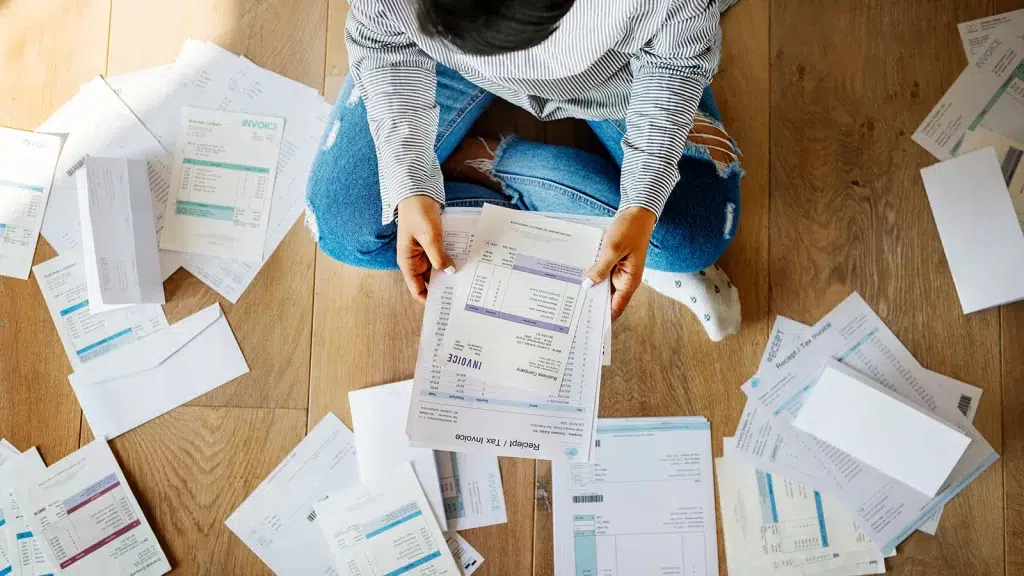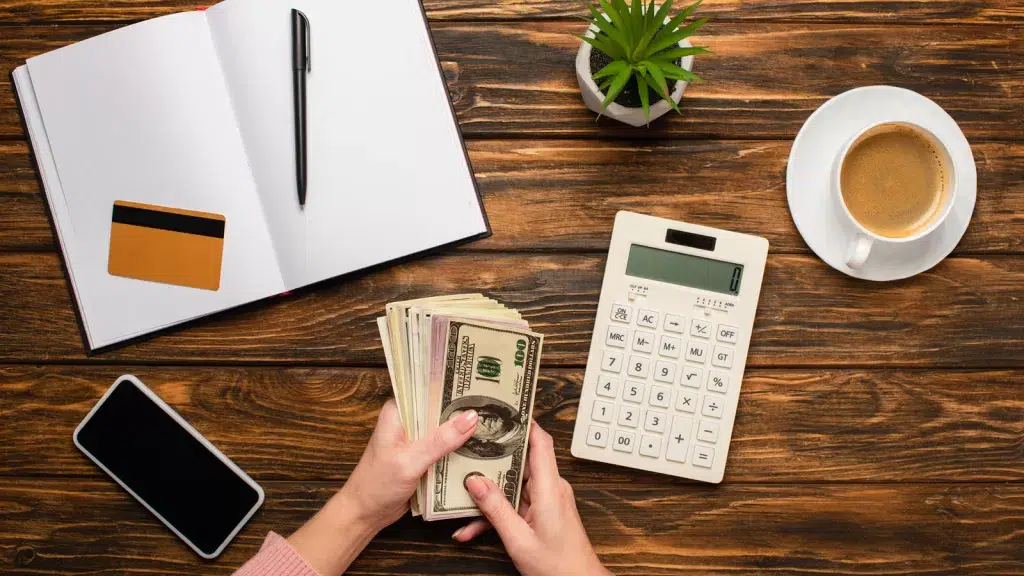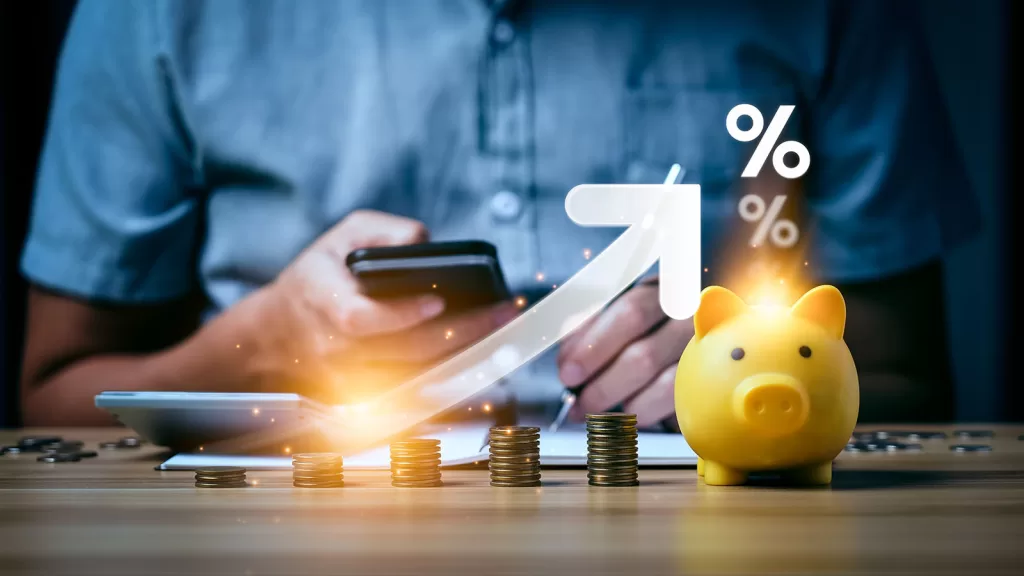Debt is a wealth killer. There’s nothing more devastating to your financial life than debt.
Whether it’s credit card debt, student loans, or personal loans, being in debt can cause stress, anxiety, and a sense of hopelessness. However, it’s essential to remember that you’re not alone, and there are steps you can take to eliminate your debt and achieve financial freedom.
In this ultimate guide, we’ll explore practical strategies and proven tips to help you become debt-free (and stay that way).
Your Guide to Becoming Debt-Free
Debt is money you owe someone else, such as a credit card company, a bank, or even a friend or family member.
It’s important to remember that you didn’t get into debt overnight, and you won’t eliminate it overnight, either. It’s a process. But don’t worry—debt relief is possible for anyone (including you!).
Understanding Your Debt

The first step in eliminating debt is understanding it. Knowing exactly how much debt you have and where it comes from is important so you can plan to pay it off.
Take stock of all your debts, including the outstanding balances, interest rates, and minimum monthly payments. Creating a comprehensive list will give you a clear picture of your financial situation and help you prioritize which debts to tackle first.
First, gather all your financial documents, such as credit card statements, loan statements, and any other documents related to the money you owe. Write down the lender’s name, the amount you owe, the interest rate, and the minimum monthly payment for each debt.
Then, organize it in a way that makes sense to you. You can use a notebook, a spreadsheet on your computer, or even a mobile app designed for tracking debts. Make sure to update your records regularly, especially when you make payments or interest rates change.
Remember, there’s a difference between good and bad debt. Yes, good debt exists!
Good debt is like a tool that helps you build a better future. It’s money borrowed to invest in something that will increase value or help you achieve important goals.
Here are a few examples:
- Education: Taking out a student loan to pay for college can be considered good debt because it’s an investment in yourself. With a college degree, you may have better job opportunities and higher earning potential in the long run.
- Real Estate: A home mortgage can also be good debt. That’s because you’re investing in a property that can be appreciated over time. Plus, you’re building equity as you repay the loan, which can be valuable later.
- Business: Borrowing money to start or grow a business can be a smart move if it helps generate more income in the future. It’s like planting seeds for your business to grow and thrive.
Bad debt, on the other hand, is like a trap that can hold you back financially. It’s money borrowed for things that lose value quickly or don’t help you achieve your goals. Here are a few examples:
- Credit Card Debt: Using credit cards to buy things you can’t afford can lead to bad debt. High interest rates can make it hard to pay off, and you pay way more than the original purchase price.
- Consumer Loans: Taking out a loan for fancy gadgets, vacations, or other things that don’t increase in value can be bad debt. These things might give you temporary pleasure, but they won’t help you in the long term and can lead to financial stress.
- Payday Loans: These are short-term loans with extremely high-interest rates, often used by people in urgent need of cash. While they might provide quick relief, they can quickly spiral out of control and trap you in a cycle of debt.
In summary, good debt helps you build wealth or invest in your future, while bad debt often leads to financial problems and can hold you back. It’s important to be smart about borrowing money and focus on using debt to improve your financial situation rather than as a crutch for unnecessary expenses.
Prioritize High-Interest Debt

Not all debts are created equal. High-interest debts, such as credit card debt, can quickly spiral out of control if left unchecked.
There are two ways to prioritize your debt.
The debt avalanche method is like climbing down a mountain of debt. You start by paying off the debt with the highest interest rate first while making minimum payments on the others. Once the first debt is paid off, move to the next highest interest rate debt, and so on.
This method saves you money in the long run because you’re tackling the most expensive debt first.
On the other hand, the debt snowball method is a bit different and is a favorite of well-known radio host Dave Ramsey. It’s like rolling a snowball down a hill, starting with the smallest debts and working your way up. You pay off your smallest debt first while making minimum payments on the others. Once that’s cleared, you move on to the next smallest debt, and so on.
This method gives you quick wins, which can be motivating and keep you going.
Now, how do you choose which method is right for you?
Suppose you’re all about saving money in the long run and can stick to a plan even if it takes a while to see big progress. In that case, the debt avalanche might be for you because it focuses on eliminating debts with the highest interest first, thus saving you money. It’s great for those who can stay focused on the big picture and are okay with delaying gratification.
But if you need to see progress quickly to stay motivated and keep going, the debt snowball might be a better fit. Paying off those smaller debts first can give you a sense of accomplishment and keep you fired up to tackle the bigger ones.
Ultimately, the right method for you depends on your personality, financial situation, and what keeps you motivated. Whether you choose the debt avalanche or the debt snowball, the important thing is to stick with it and keep chipping away at your debt until it’s all gone.
Create a Budget

A budget is a powerful tool for managing finances and paying off debt.
But it’s also not something most of us like to think about. Budgets seem restrictive. However, when eliminating debt, budgets can be a great tool to help you control spending.
With a simple plan and some discipline, you can whip your finances into shape and kick that debt to the curb. Here’s how:
- Gather Your Financial Info: Gather all your financial documents before you start. This includes bank statements, bills, credit card statements, and any other debts you owe. Knowing exactly what you’re dealing with is key.
- Calculate Your Income: Determine how much money you bring in each month. This includes your salary, side hustles, and even freelance gigs or odd jobs.
- List Your Expenses: Write down all your monthly expenses (using a spreadsheet will make this easier to visualize). This includes necessities like rent or mortgage, utilities, groceries, transportation, and minimum debt payments.
- Differentiate Wants vs. Needs: Now, look at your expenses. Separate them into two categories: needs and wants. Needs are things you can’t live without, like food and shelter. Wants are things you could live without, like dining out or subscription services.
- Trim the Fat: Once you’ve identified your wants, see where you can cut back. Maybe you can cook more meals at home instead of eating, cancel that gym membership you never use, or your subscription to HBO Max you never watch. Every little bit helps!
- Track Your Spending: Keep tabs on where your money is going. Use apps or spreadsheets to track your expenses and ensure you’re sticking to your budget.
- Emergency Fund: While it might seem counterintuitive when trying to pay off debt, having a small emergency fund can prevent you from falling further into debt when unexpected expenses pop up.
- Stay Flexible: Life happens, and you might need to adjust your budget. That’s okay! The key is to stay committed to your goals and get back on track as soon as possible.
- Celebrate Milestones: As you start paying off your debts, celebrate your victories! Whether treating yourself to a small reward or simply acknowledging your progress, it’s important to recognize how far you’ve come.
Remember, creating a budget and sticking to it takes time and practice. Don’t get discouraged if you slip up occasionally. The important thing is to keep moving forward and stay focused on your goal of becoming debt-free!
If you need some inspiration, here are four sample budgets from real folks.

Consider Debt Consolidation

Debt consolidation might be a good option for some, depending on your situation.
Debt consolidation involves combining multiple debts into a loan with a lower interest rate. This can make it easier to manage your payments and potentially save money on interest.
Here is how it works.
Suppose you have a bunch of different debts, like credit card bills, a car loan, and maybe even a personal loan. Keeping track of all those payments can be stressful and error-prone. Debt consolidation is like putting all those debts into one big basket.
Instead of making multiple payments to different lenders, you make just one payment monthly to a debt consolidation company or take out a single loan to pay off all your debts.
Now, deciding if debt consolidation is a good idea depends on a few things:
- Interest Rates: Check if the interest rate you’re getting with debt consolidation is lower than what you currently pay on your various debts. If it is, you could save money in the long run.
- Monthly Payments: Make sure the monthly payment with debt consolidation is something you can afford. It’s important not to take on a payment that’s too high for your budget.
- Total Amount Repaid: Calculate how much you’ll repay with debt consolidation compared to what you would pay if you continue with your current debts. Sometimes, even if the monthly payment is lower, you might pay more overall if the repayment period is longer.
- Fees and Charges: Be aware of any fees or charges associated with debt consolidation. These can add up and eat into your savings.
- Credit Score: Consider how debt consolidation might affect your credit score. Consolidating credit card debt with a loan can improve your score by reducing your credit utilization ratio.
- Financial Habits: Consider whether your financial habits have changed. Debt consolidation could be a good way to get ahead if you’ve learned to manage your money better and won’t rack up more debt.
Remember, debt consolidation isn’t a magic fix. It’s a tool to help you manage your debts more easily. Before you decide, take the time to crunch the numbers and understand how it will impact your finances in the long term.
Negotiate with Creditors

Don’t hesitate to negotiate with your creditors to seek more favorable terms.
Contact them directly to discuss lower interest rates, reduced fees, or extended repayment plans. Many creditors will work with you if you’re proactive and demonstrate a commitment to paying off your debt. Negotiating can help you lower your monthly payments and make debt repayment more manageable.
Here are some steps to help you navigate this conversation:
- Prepare Yourself: Before you call or meet with your creditor, take some time to organize your thoughts and gather information about your financial situation. Know exactly how much you owe, your income, and other relevant details.
- Be Honest and Transparent: When you talk to your creditor, be honest about your financial difficulties. Explain why you’re struggling to make payments and provide documentation supporting your situation, such as pay stubs or medical bills.
- Ask for Options: Politely ask your creditor if any options are available to help lower your debt. This could include reducing the interest rate, extending the repayment period, or negotiating a settlement amount.
- Express Your Willingness to Pay: Let the creditor know that you’re committed to paying off your debt, but you need some flexibility to make it manageable. Assure them you’re not trying to avoid your responsibilities but seeking a realistic solution.
- Negotiate: If the creditor offers you some options, don’t hesitate to negotiate further. Be respectful but firm in advocating for terms that you can realistically meet. Remember, it’s a negotiation, so both parties may need to compromise to reach an agreement.
- Get Everything in Writing: Once you’ve agreed on a plan with your creditor, get all the details in writing. This includes the new payment terms, any changes to the original agreement, and the consequences for not adhering to the new arrangement.
- Stick to Your Commitments: Once you’ve reached an agreement, it’s crucial to stick to your commitments. Make your payments on time and in full according to the new terms. This demonstrates your reliability and helps rebuild trust with your creditor.
Boost Your Income

In addition to cutting expenses, boosting your income can accelerate debt repayment.
Here are a few ways to boost your income:
- Get a Part-Time Job: A part-time job is a great way to earn extra money. You can look for jobs like working in a store or restaurant or doing tasks like babysitting or dog walking. These jobs often have flexible hours so that they can fit around your schedule.
- Start a Side Hustle: A side hustle is something you do on the side to make extra money. It could be selling handmade crafts, tutoring students, or doing freelance work like graphic design or writing. Think about what skills or hobbies you have that you could turn into a money-making venture.
- Take on Gig Work: Gig work involves doing short-term tasks or projects for people or companies. You can sign up for platforms like Uber, TaskRabbit, or Fiverr to find gigs like driving people around, doing odd jobs, or offering services online.
- Rent Out Your Space: If you have extra space in your home, you could rent it out to make some extra cash. You could rent a room on websites like Airbnb or your driveway for parking.
- Monetize Your Hobbies: If you have a passionate hobby, see if there’s a way to make money from it. For example, if you love taking photos, you could sell them online. If you enjoy baking, you could start selling your baked goods to friends and family or at local markets.
Consider asking for a raise if you feel under-compensated.
Use this extra income to make larger payments towards your debts or to build an emergency fund to prevent future financial setbacks. Every extra dollar you earn brings you closer to financial freedom.
Stay Motivated

Paying off debt is a marathon, not a sprint. It requires discipline, patience, and perseverance. Stay motivated by setting achievable goals and celebrating milestones along the way.
Here are some easy ways to keep your spirits up:
- Set Clear Goals: Figure out how much debt you want to pay off and by when. Having a clear target gives you something to aim for.
- Break It Down: Big debt can feel overwhelming. Break it into smaller, more manageable chunks, and celebrate each small victory along the way.
- Track Your Progress: Keep tabs on how much you’ve paid off. Seeing the numbers go down can be motivating.
- Reward Yourself: Treat yourself when you hit milestones. It doesn’t have to be a big splurge; even small rewards can keep you motivated. More on this below.
- Find Support: Talk to friends or family about your goals. Having people cheering you on can make a big difference.
- Stay Positive: Focus on the progress you’re making, not how far you have to go. Positive thinking goes a long way.
- Visualize Your Debt-Free Future: Imagine how great it will feel when you’re finally debt-free. Keeping that vision in mind can help you stay motivated.
- Educate Yourself: Learn about personal finance and debt management. The more you know, the more empowered you’ll feel to tackle your debt.
- Avoid Temptation: Avoid situations that might tempt you to overspend. Stick to your budget and your goals.
- Be Patient: Rome wasn’t built in a day, and neither is a debt-free life. Stay patient and keep chipping away at it. You’ll get there eventually!
Whether it’s paying off a credit card or reaching a certain debt-free date, acknowledge your progress and use it as fuel to keep moving forward. Surround yourself with a support system of friends, family, or online communities who can encourage you during challenging times.
Celebrate Your Success

Finally, when you’ve paid off your debts and achieved financial freedom, take a moment to celebrate your success. You’ve overcome challenges, made sacrifices, and taken control of your financial future.
Don’t celebrate in a way that puts you back into debt!
Whether treating yourself to a small splurge or simply reflecting on how far you’ve come, acknowledge your accomplishment and use it as motivation to continue making smart financial decisions.
Becoming debt-free is a transformative journey that requires dedication, discipline, and determination. By understanding your debt, creating a budget, prioritizing high-interest debt, exploring consolidation options, negotiating with creditors, increasing your income, staying motivated, and celebrating your success, you can eliminate your debt and achieve financial freedom.
Remember that it’s never too late to take control of your finances and build a brighter future for yourself and your loved ones. Start your debt-free journey today and take the first step towards a life without financial constraints.



